Cut Up: Margo King
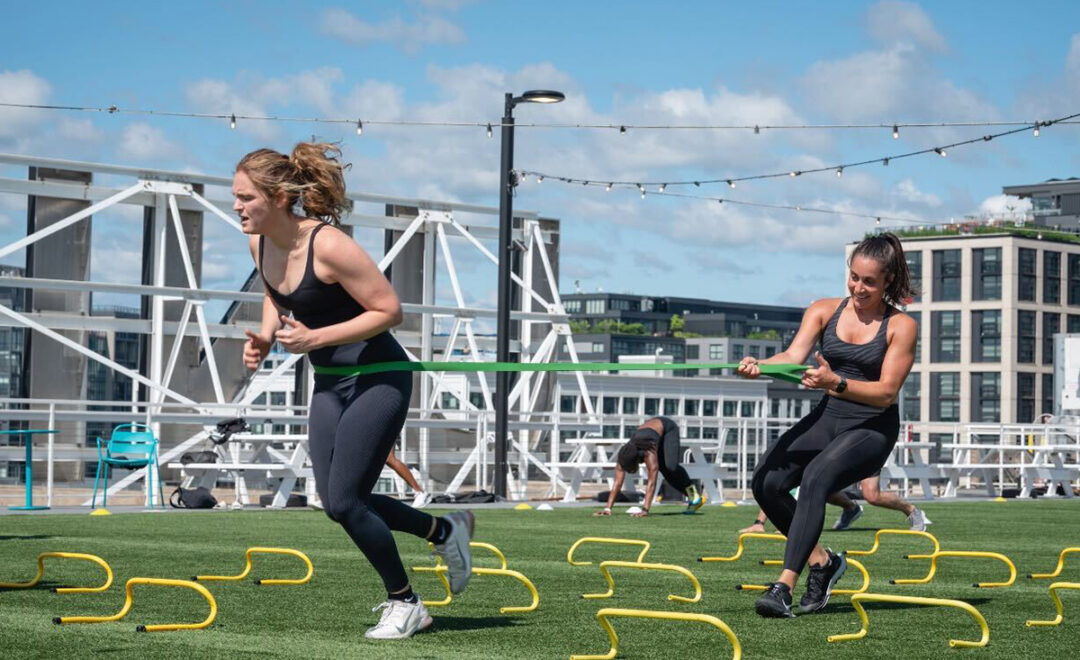
Margo King—known to some as Spicy Marg—has been a Cut athlete since 2020. Since she first graced us with her presence at Garrison Field, you may have noticed the following: She’s consistent, never shies away from a challenge, and is more-than-willing to push her fellow teammates.
Here’s what you might not know: Margo is an ICU nurse of 5+ years. Her career started in 2017 at Georgetown University Hospital, before she became a traveling nurse moving between Denver, New Zealand, and—right before the pandemic—San Diego. Once COVID hit, Margo landed back in DC, spending her nights working in the ICU and her mornings with us, here on the turf.
Below, find out more about Marg, what led her to find Cut, and how her daily workout helped her prioritize mental health throughout the pandemic.
How did you find Cut?
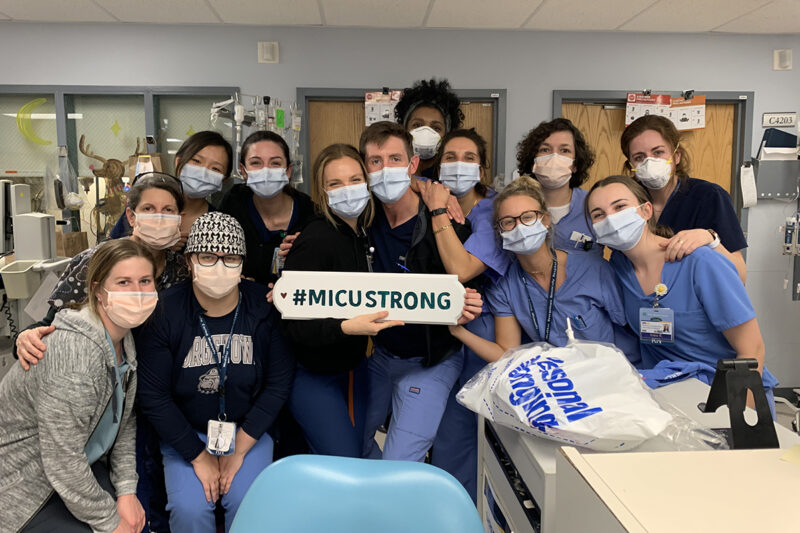
San Diego was a challenge. I was working in the ICU, living across the country from friends and family, being inundated with so many unanswerable questions surrounding COVID.
Here’s what people don’t understand about nurses: We’re in the room the whole time. For twelve hours a day throughout the pandemic, we were surrounded by patients diagnosed with COVID. We were the ones holding patients’ hands. We watched people lose family members, every single week. We felt as though we lost a piece of ourselves, week after week.
I was trying to find a way to survive. It was a constant struggle watching patients—and I know this sounds morbid—not survive. I applied to graduate school at John Hopkins, which brought me back to the ICU unit at Georgetown. One day, I drove by Cut Seven, and just felt like I needed something for myself.
How did Cut go from just a workout to a daily priority?
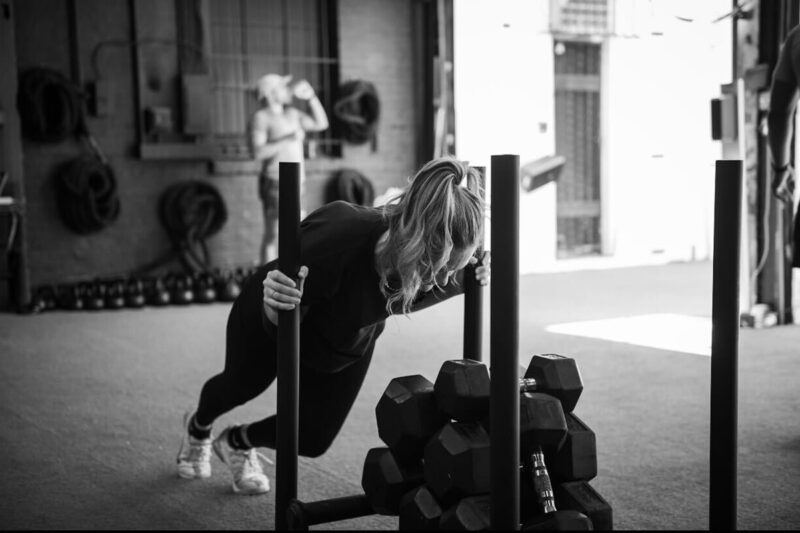
While looking into Cut Seven, I heard it was the best-yet-hardest workouts around. I went to my first class at Garrison, at 4:30 in the afternoon on one of the hottest days you can imagine, on a half heart day.
The first round? I thought okay, wow—this is a great workout. Then, when Clarence said we were doing it all again, I couldn’t believe it. From that moment, I was hooked.
Since 2020, Cut has been one of the coolest things I’ve done for myself. It kept me mentally well throughout the pandemic, while giving me a community in a time I felt most isolated. In the ICU, I was caring for patients who physically couldn’t speak because they were hooked up to breathing machines. But on the turf, I could come together with the team—during one of the hardest times any of us will ever experience. From then on, I knew Cut had to remain a priority.
Where did you sweat before Cut?
I played competitive soccer, ran half marathons, and even did a few triathlons. I became a CorePower instructor in 2017, and coached on top of working full-time up until the pandemic. When I commit to something, I commit hard—so yoga sculpt was my primary workout.
I love Cut because in a single hour, I feel more challenged than ever—even after two years. Every day I have to take a breath—even for the warmup—knowing the workout will kick my ass.
How have the coaches helped you progress as an athlete?
Once, I was taking class with Marcus and doing box-hop-over belly downs. Marcus walked over and said, “Remember when you started and couldn’t do this? Look at you now.”
Many times, you don’t recognize your own day-to-day progress. Yet, the way I workout has significantly improved. It’s cool to be called out and recognized for your progress—even if it’s being handed a heavier weight. Now, I know that whenever I’m asked to pick up a heavy weight, I know it’s because they believe I can do it.
How has your workout routine impacted your mental health?
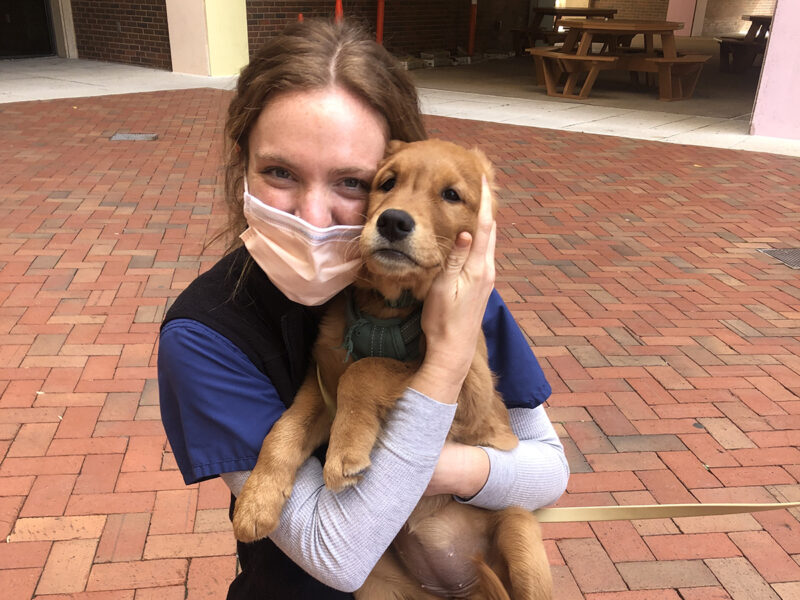
I’m in grad school full time, getting my doctorate in critical care nursing; plus working full time as an ICU nurse at Georgetown. I have to prioritize my nonnegotiables—starting with my mental health. Cut provides one hour each day where it doesn’t matter if I had the worst shift ever, lost a patient, or am just exhausted. I know I’m going to wake up, go to 9:30, see Judd, Marcus, Shabo, and other teammates; and it will all be okay. Cut allows me to “shut off” in a healthy way—it’s a priority I’m unwilling to bend on.
Sometimes, people think being “healthy” means looking a certain way or getting a workout in. For me, being healthy means prioritizing all aspects of health—including the physical, mental, and emotional. Every day, I watch people in the ICU who don’t prioritize those things. I’m glad I got a routine that will sustain me through the toughest times.
You were new once—what would you want Cut newcomers to know?
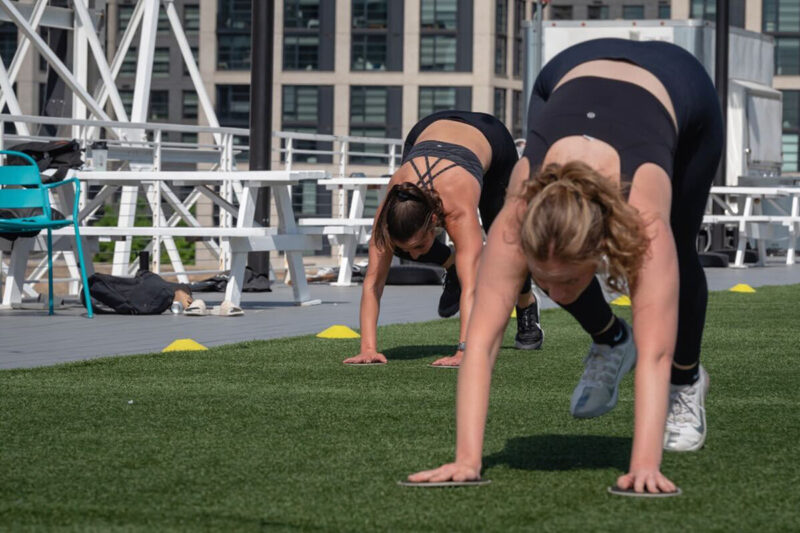
Trying something new is intimidating. In group fitness, you could walk into a class where everyone has gone for a while and knows each other. Cut is unique because someone—whether it’s a coach, captain, or fellow athlete—is guaranteed to learn + call out your name throughout the whole class. The way a coach shouts, “Learn the name of the person next to you!” means a lot to a newcomer.
You can find a workout anywhere. But to go somewhere and feel known—to get that feeling like you’re supposed to be there—is rare. Making someone feel wanted and known goes a long way. It goes back to the manifesto: I push you, you push me; I cheer for you, you’ll cheer for me; I make a difference in your workout, you make a difference in my workout.
I sell everyone on Cut. I make sure everyone knows the team aspect—a lot of people grew up playing sports, and miss the companionship. Life is hard, and rarely do we cheer for each other in our daily routines. This is one hour where people clap for you and say, “Good job!” no matter how hard the workout. You leave the turf knowing you were cheered for and supported—and you’ll come back because you want to be there.